› MBiotech’s Digital Health Technologies (DHT) curriculum comprises both required courses that all students take and elective courses that students choose to take to meet their elective credit requirement, or simply out of interest. { or jump to BioPh Curriculum | This page last updated: 12-May 2025 }
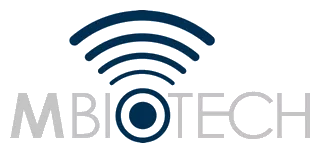
› Curriculum
The MBiotech Program provides an intensive series of courses that provide a solid foundation in the biotechnological space, delivered in two parallel streams. These courses encompass both the scientific and business realms, with overlapping content designed to reinforce key sector-specific knowledge sets and to provide students with a broad interlocking mosaic of concepts.
The core courses for both fields cover related content including business courses, the internship requirements and the Biopartnering seminar series. The remaining content is presented in different courses for each stream to reflect different emphases, as follows—
- The Digital Health Technologies (DHT) stream covers similar content by looking at regulation (with a medical device/software emphasis), drug development to provide a framework to understand major steps in medical device/software development, clinical trial design to provide the context for data output that will be analyzed (emphasis on data analysis), and drug action basics (not as technically detailed as the BioPh stream), through courses in Digital Health Technology, Data Science in Health I, Data Science in Health, Part II and Digital Ethnography in Health.
- The technical training between the fields is different with BioPh students learning laboratory technique in two courses (Molecular Biology Laboratory and Biomaterials & Protein Chemistry Laboratory) while DHT students learn programming and advanced statistics (Coding in R Language; Data Science in Health I and Data Science in Health, Part II).
› Credit Requirements
Students enrolling in DHT steam of MBiotech are required to complete 9·5 graduate course credits over a 24-month period on a full time basis. These 9·5 credits comprise the following—
› 11 Science courses (0·5 credits each, for a total of 5·5 credits)
› 3 Business courses (0·5 credits each, for a total of 1·5 credits)
› 2 Work Term courses (1·0 credit each, for a total of 2·0 credits)
› Electives (0·5 credits)
› Our Required Courses(R)
| › YEAR 1 DHT |
Seminar Series (BTC16x0)
BTC1600H › Biopartnering I { Sep-Dec }
Digital Health Series (BTC18x0)

BTC1842H › Medical Device Reimbursement { May-Jul }
BTC1855H › Coding in R Language { May-Aug }
BTC1859H › Data Science in Health I { May-Aug }
BTC1877H › Data Science in Health II
{ Sep-Dec }
BTC1878H › Health Data Visualization with Tableau { Jan-Apr }
BTC1882H › Digital Ethnography in Health { Sep-Apr }Y Course
BTC1889H › Deep Learning in Health { Jan-Apr }
BTC1895H › Python Coding { Jan-Apr }
Business Series (BTC20x0)
BTC2000H › Effective Management Practices { May-Dec }Y Course
BTC2010H › Fundamentals of Managerial Concepts { Sep-Dec }
| › YEAR 2 DHT |
Seminar Series (BTC16x0)
BTC1610H › Biopartnering II { Sep-Dec }
Digital Health Series (BTC18x0)
BTC1899H › Digital Health Technology { Sep-Apr }Y Course
Work Term Series (BTC19x0)
BTC1900Y › Work Term I { May-Aug }
BTC1910Y › Work Term II { Sep-Dec }
Business Series (BTC20x0)
BTC2030H › Management of Technological Innovation { Jan-Apr }
› The Electives(E)
| › YEARS 1 & 2 DHT |
Digital Health Series (BTC18x0)
BTC1896H › Technology & Cognitive Performance { Sep-Dec }
Work Term Series (BTC19x0)
BTC1920Y › Work Term III { Jan-Apr }
Special Topics Series (BTC21x0)
BTC2100Y › Thesis Project in Biotechnology
BTC2110H › Supervised Study { Jan-Apr }
BTC2120H › Decision Analytics in Business, Healthcare & Management { Jan-Apr }
› Course Descriptions
— All mandatory courses (but not electives) offered in the DHT stream are described in this section.
BTC1842H › Medical Device Reimbursement { Year 1 }
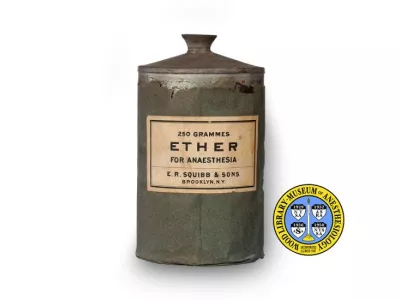
Session: Summer
Instructor: Mark Smithyes
Credits: 0·5 R
Course Description:
Medical device reimbursement for medical devices is critical for successful product commercialisation. This course discusses the regulatory and reimbursement landscape in Canada and presents a medical device reimbursement framework that can be applied when seeking medical device reimbursement. The framework focuses on the medical device and the reimbursement environment where payment is being sought. The course involves lectures and reimbursement challenges. Teams of students will conduct reimbursement assessments and develop and present reimbursement plans for real-world medical device reimbursement. At the conclusion of the course, students will have the knowledge and tools to build a medical device reimbursement plan.
BTC1855H › Coding in R Language { Year 1 }
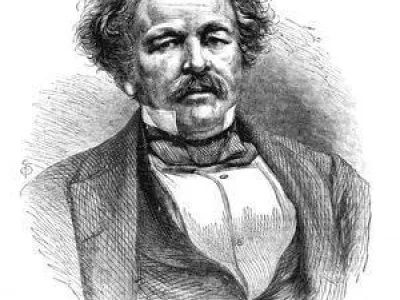
Session: Summer
Instructor: Denise Mak
Credits: 0·5 R
Course Description:
This course teaches basic programming skills to non-programmers and introduces them to the value of those skills. Students will learn about the various capabilities of the R programming language and participate in discussions about the purpose of programming including task automation and interactive web design. Students will be introduced to elementary data types, control flow and functions as well as functional and object oriented programming. Students will practice approaches to problem solving with computer programs and learn debugging strategies. By the end of the course, students are expected to create a program that helps them solve a problem or perform a task (either self-chose or assigned) in the context of data science.
BTC1859H › Data Science in Health I { Year 1 }
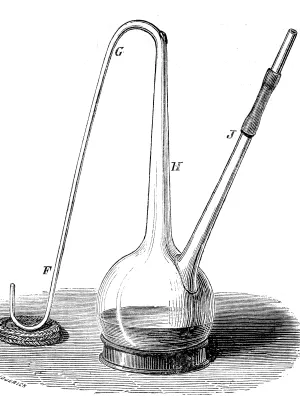
Session: Summer
Instructor: Nicholas Mitsakakis
Credits: 0·5 R
Course Description:
This course will introduce students to biostatistics and data science. This course is intended for both students new to the area and those with prior training.
Statistical and data analysis methods covered will start with descriptive statistics and basic univariate tests and continue to more advanced regression models and other topics. The sessions will include lectures and hands-on tutorials that include real-time exercises. It is key that students are able to identify which methods to apply to what kind of data set, the assumptions of the model and how to interpret the output. Special emphasis in the course will be placed on critical thinking around analytical methods to be used.
Problem sets will be focused on the application of statistical modelling to the biological and health sciences. This may include laboratory or clinical data sets. Your defence of your analysis, as well as critiquing the work of others, will require you to draw upon some of your knowledge of biology and the health sciences.
A key component of the course will involve programming in R in order to conduct statistical analysis. Students will have both individual and team assignments to provide practice coding in R, one of the main languages used today in performing statistical analysis. Comfort with R will be helpful in learning other languages in the future in a statistical context. Off the shelf software, while more convenient, may not be available in the work environment you find yourself in and certain tests you may need, may not be available in any such software. Thus, learning to code is the best path forward for future practitioners of data science.
BTC1600H › Biopartnering I { Year 1 }
BTC1610H › Biopartnering II { Year 2 }
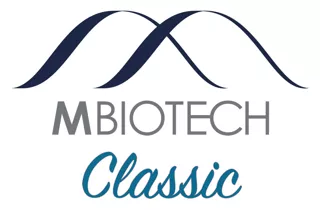
Session: Fall
Instructor: Stephen Mac
Credits: 0·5 R
Course Description:
The ‘Biopartnering’ seminar series is a program requirement for all MBiotech students — in both the BioPh and DHT streams. BTC1600H and BTC1610H are held in conjunction with one another, meaning all students (regardless of year or program stream) attend the seminar on the same date and time. The seminar is held once per week during the Fall semester, on Tuesday evenings for approximately two hours. It is comprised of both presentations by select speakers from industry as well as student presentations. The course challenges students to provide insights into industry issues that would be seen as a valuable contribution by experts in the area. Each student will participate in a formal group presentation, in their first year, and will complete other academic requirements such as critiques, team mentoring and an individual report in their senior year. The topics presented in this course will range from scientific (latest technologies and research, analysis of pre-clinical and clinical data) to business-oriented issues (e.g., market strategies for pharma and biotechnology products, government regulations, intellectual property, finance, ethics, etc.).
› Jump to the Biopartnering Seminar page
BTC2000H › Effective Management Practices { Year 1 }

Sessions: Summer & Fall Y Course
Instructor: Eva McLellan & Fatima Nishan
Credits: 0·5 R
Course Description:
This course introduces students to the basic skills and concepts needed to become an effective member of an organisation. It focuses on (1) team working skills, (2) fundamental managerial skills, and (3) career management skills. The course is participative in its design and requires students to apply the material in the course. It provides the first opportunity for a team approach to problem solving and will provide a realistic preview of the work place.
This course will be used to define and organise groups of students who will work in teams to complete the subsequent laboratory modules.
BTC1877H › Data Science in Health II { Year 1 }

Session: Fall
Instructor: Nicholas Mitsakakis
Credits: 0·5 R
Course Description:
This graduate course takes students with a basic background in statistics and equips them to tackle massive data sets in health. The focus will be on advanced statistical tests in machine learning and assemble such tests by accessing and validating publicly available code in the R programming language and creating their own code as needed. Students will also learn additional techniques pertaining web scraping, working with unstructured data, data cleaning and data governance building upon the course Data Science in Health I. The course will emphasise creative approaches to analysing data and how to be critical of misleading analysis. Each class will involve both lecture and weekly tutorial assignments. The major project for the course will involve a large health data set that teams will compete to analyse.
BTC1882H › Digital Ethnography in Health { Year 1 }
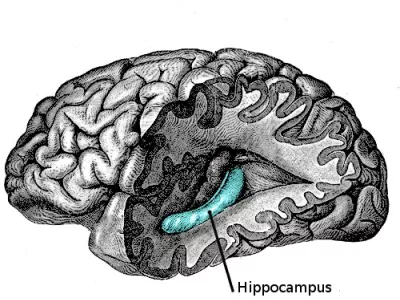
Sessions: Fall & Winter Y Course
Instructor: Jayson Parker
Credits: 0·5 R
Course Description:
This course will introduce students to the development of a wide range of product categories and topics pertaining to the commercialisation of healthcare products. The course will touch upon medical devices, wearable technology, clinical trial design, biopharmaceuticals, digital health, big data in health, medical apps, biomarkers, medical marketing, treatment guidelines, screening tools, diagnostics and social listening. Understanding clinical trial design and the regulatory pathway through the US FDA is a major focus of the course. There will be an emphasis on digital health regulation. The course will also introduce students to 3D printing and its applications in healthcare. Students will be required to get familiar with the digital modelling tool Blender. Students will explore segmentation of physicians based on their clinical practices, drawing upon some of their data science training. The major project for the course will focus on the use of social listening for a product to derive insights into different issues based on the expressed interests of an industry partner. Students will be required to develop a strong level of mastery with the social listening tool Brandwatch and combine that with their foundational knowledge in the course, along with their data science training, to derive insights.
BTC2010H › Fundamentals of Managerial Concepts { Year 1 }
Session: Fall
Instructor: Kevin Yousie
Credits: 0·5 R
Course Description:
This foundational course introduces students to a broad range of the critical managerial concepts that are required to operate successfully in today’s biotechnologically focused organisations. Topics covered include forms of business ownership, an introduction to financial statements, financial statement analysis, time value of money, marketing management, market segmentation, product positioning, the marketing mix, pricing decisions, channel and marketing communications management, as well as some aspects of organisational behaviour and strategic management. Theory and application are combined through the use of readings, case studies, presentations and a group project.
BTC1878H › Health Data Visualization with Tableau { Year 1 }

Session: Winter
Instructor: Shafquat Arefeen
Credits: 0·5 R
Course Description:
In this course, we discuss data analytics and visualizations using Tableau Desktop and Tableau Prep software. We survey methods in data cleaning and prepping through ETL (Extract, Transform, Loading). We examine best practises in developing dashboards and understand how to tell a story with health and biological data. Our overall goal is to provide a foundation for using Tableau in data-driven decision making in the life sciences. Visualization with Tableau will be supplemented with R coding techniques students have learned from previous courses.
Upon completion of this course, students will be able to frame various classes of healthcare problems as analytics problems using Tableau, to appropriately identify data sources and build visualizations from them. Students will get practice in planning and developing interactive dashboards that help answer analytical problems and provide data accessibility to a non-technical audience.
BTC1889H › Deep Learning in Health { Year 1 }
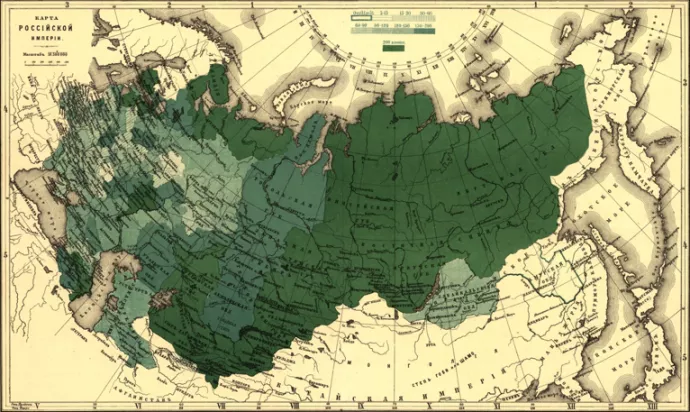
Session: Winter
Instructor: Nicholas Mitsakakis
Credits: 0·5 R
Course Description:
This is an advanced course in machine learning that is focused on the application of neural networks in a health context. The course assumes a strong foundation to create machine learning models in the coding language R. Basic foundations of neural networks are reviewed. Students will learn about the limitations and the appropriate use of neural networks by working on health and biological related data sets.
BTC1895H › Python Coding { Year 1 }
Session: Winter
Instructor: TBD
Credits: 0·5 R
Course Description:
This introductory course to basic python coding assumes students already know the basics of coding based on their prior training in the R coding language. Some concepts will be built upon already learned in R, such as data structures, in Python. The focus will be on data science basics. The course will also introduce more advanced concepts such as tools for supervised/ unsupervised learning that will be helpful for deep learning focused courses.
BTC1900Y / 1910Y / 1920Y › Work Terms I, II & III { Year 1 + 2 }

Preparation: Fall & Winter
Sessions: Year-Long (begins Summer)
Instructor: Nazeem Shamsuddin
Credits: 2·0 R + 1·0 E
Course Description:
This series of centrepiece courses is designed to grant our students a more in-depth appreciation and understanding of the biotechnology and biopharmaceutical industry in a corporate and/or industrial setting, and to apply their knowledge and skills in a real-world context. Students are required to complete two 4-month full-time Work Term placements that are arranged by the course coordinator to ensure that the role, responsibilities and activities are at a graduate level. Credit-granting responsibilities reside with the course instructor, based on assignments and feedback from students’ Work Term supervisors.
Required preparatory exercises and assignments must be completed in the Fall and Winter/Spring sessions, leading up to the start of the placement in Summer, in order for students to qualify for Work Term I. These preparatory requirements can involve résumé workshops, one-on-one meetings with members of the MBiotech team, attendance at the annual Career Day, and more.
Students in Work Term II may continue with the same employer from Work Term I, or alternatively with a new employer or department. Students’ performance and their work experiences is evaluated in a manner similar to that for Work Term I.
Note: BTC1920Y, Work Term III is an optional elective course that extends the placement experience to a full 12 months’ duration. Students taking Work Term III share their experiences by means of a mandatory Networking Night component in late April or early May.
Students receive credit/no credit grades for all three courses.
BTC1899H › Digital Health Technology { Year 2 }
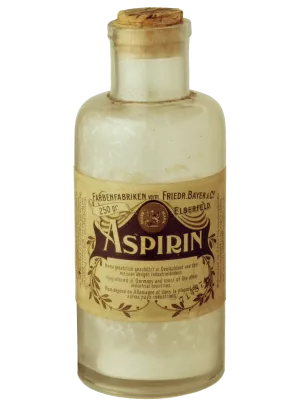
Sessions: Fall & Winter Y Course
Instructor: Jayson Parker
Credits: 0·5 R
Course Description:
This course has two parts that challenge students to think about the commercialisation of digital health products. In the first half of the course students will build upon their training in digital health regulation by doing a reverse engineering assignment on a technology (e.g., health software). Students will also be introduced to detecting hype around a health technology and to distinguish this activity from more meaningful indicators of validation. Human factor engineering will be introduced in the context of basic psychology and its application to usability analysis and product design. The first half of the course involves individual student presentations that forecast the future of a digital health product and provide a critical analysis of the technology. The second half of the course challenges the students to think about creating their own digital technology. Special emphasis will be placed upon developing a compelling use case, regulatory strategy and market analysis. The second half of the course shifts to independent study by student teams that is supervised by the instructor.
BTC2030H › Management of Technological Innovation { Year 2 }

Session: Winter
Instructor: Ruben Gaetani
Credits: 0·5 R
Course Description:
In this course, we will define technological innovation as the process of leveraging new ideas to create economic value and deliver this value to shareholders, employees, consumers, and our society at large. This process involves critical strategic choices that are common to most organisations, from small startups to large established companies: What is the best way to bring an idea to the market, and to arrange production and distribution? How should we redesign our internal organisation, as well as the system of partnerships and relationships with external players? Should we redefine our vertical and horizontal boundaries, for example by outsourcing some activities or entering new geographical markets? Throughout the course, we will refine our ability to approach and find the best answer to these (and many other) questions. Using an applied and discussion-based method, we will learn how to effectively convert a creative idea into a valuable innovation.
Since this Year 2 course runs concurrently with Work Terms, special remote learning provision is made available to those students who are out-of-province during the term, pending the Directors’ approval.
